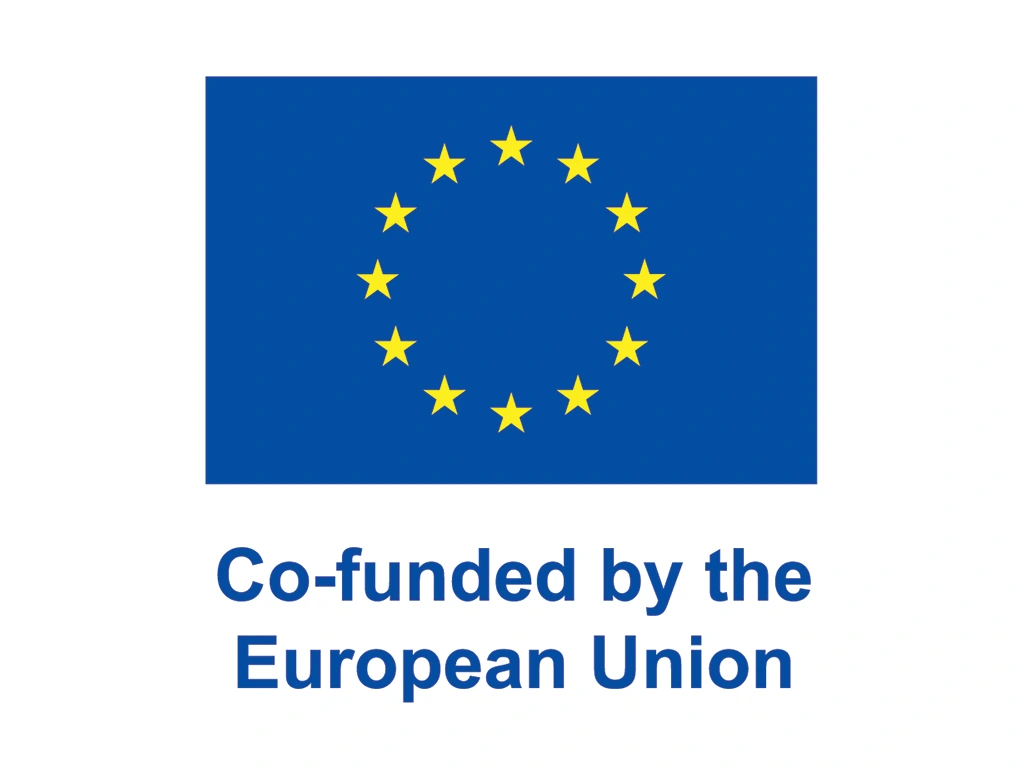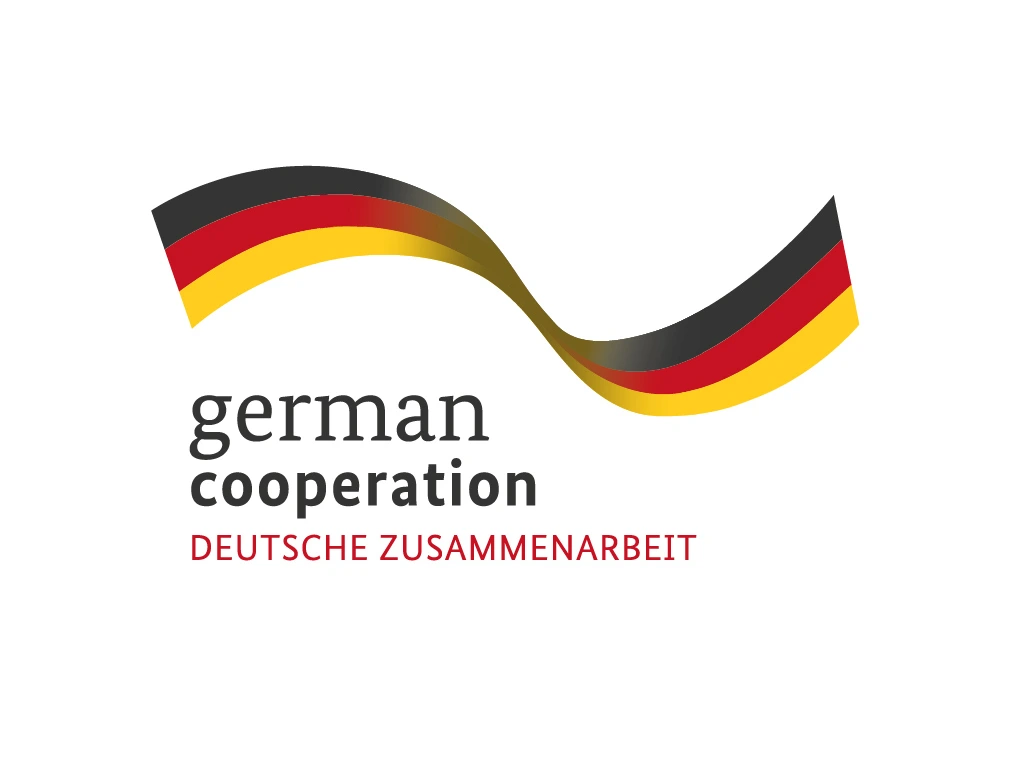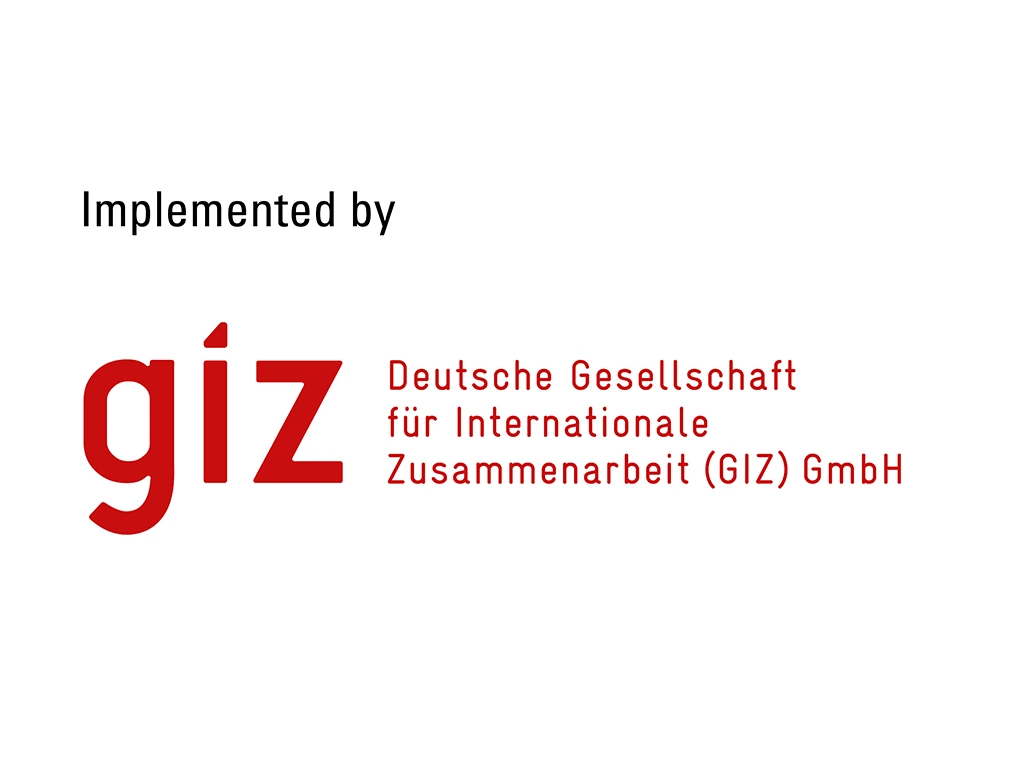TIRANA, ALBANIA — [November 8th – 9th] — Customs and other government agencies in the Western Balkans will collaborate even more closely to leverage the potential of already-established partnerships in the ever-evolving digital landscape.
These were among the key takeaways from the Regional Conference on Trade Facilitation, under the theme “Unleashing Collaborative Partnerships in the Digital Era held on November 8th – 9th in Tirana. The conference brought together approximately 200 distinguished officials and business leaders from across the Western Balkans, Moldova, EU Member States, the EU Commission, WCO, and the United States. The conference was organized within the GIZ “Support to Regional Economic Integration” project, funded by the European Union and the German Government, in close collaboration with the General Directorate of Customs of Albania.
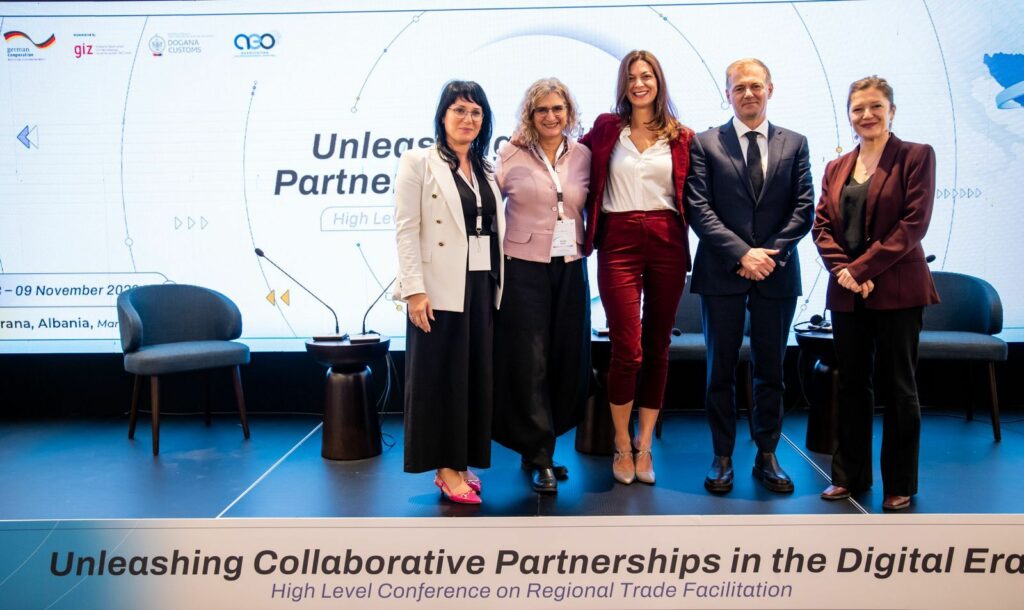
Mr. Ervin Mete, Minister of Finance and Economy of Albania, highlighted the progress made in regional economic integration, emphasizing that the Berlin Process presents a promising chance to attaining our shared objectives in the area of economic integration and Balkan region development. “To this end, it is of utmost importance to align customs procedures with the European Single Market. This conference provides a valuable opportunity not just to exchange common visions and ideas, but also to build new bridges of cooperation. I trust it will successfully fulfill this purpose,” stated Mr. Mete.
H.E. Karl Bergner, German Ambassador to Albania, emphasized the significance of collaborative efforts for the region’s economic growth. “Regional economic integration is essential for succeeding with the economic reforms within the Western Balkans economies, and reinforcement of their commitment to create efficient trade policies that can complement with the future European Union adhesion obligations. The major priority of these efforts is to accelerate the enlargement agenda across the region, and the implementation of the initiatives of the Berlin Process, that have become an integral part of the policy of the EU towards the region”, he stated.
Mr. Genti Gazheli, Director General, Customs Administration highlighted the importance of adaptive strategies in trade facilitation. “Customs is the first gateway to the process of European integration and therefore the alignment of customs procedures with those of the European Single Market is paramount. Indeed, facilitating business activities has a positive impact on the economy provide that procedures are implemented efficiently and effectively. The facilitation of customs procedures for the import, export and transit of goods brings multiple benefits, it increases the volume of trade and simultaneously reduces red tape and costly delays in trade activities and administrative costs at the border”.
Dr. Hubert Perr, Head of Cooperation, EU Delegation to Albania, stated that the work under the trade facilitation is essential, both for the development of the regional market, as for the integration in the Single EU market. He confirmed the European Union’s commitment to fostering collaboration and integration in the region: “The New Growth Plan, for the Western Balkans demonstrates the EU’s commitment to enlargement, accelerated integration, with the aim to addressing socio – economic convergence – already now”.
Mr. Philippe Duponteil, Director for Digital Delivery of Customs and Digital Taxation Policies (DG TAXUD) from European Commission stated that “the collaboration, partnership and trust are three words that go each hand -in hand in the customs world. These three words were beacons at the European Commission in the past two years. On 17 May 2023, the Commission has adopted the Customs EU Reform package. It is the biggest and most ambitious reforms since the inception of our Customs Union in 1968. Collaboration, partnership and trust between traders, international partners and customs authorities are at its basis. The main objective of the reform to simplify the life of compliant and trustworthy economic operators even more. The AEO programme set the basis for this trust, but we want to bring this relationship to the next level” he explained and underlying that the real game-changer – which is also why I am very pleased with the title of this high-level conference – is the fact this “next level relationship”, is fully unleashed through digital means. Trusted and checked traders will need to operate an electronic system, which makes available real-time data on the movement of their consignment and their compliance with all relevant requirements, through the EU Customs Data Hub.”
Mr. Kunio Mikuriya, Secretary General of the World Customs Organization, stated that promoting regional trade facilitation is high on the agenda of the WCO. “In practice, Single Window approach as a digital collaboration platform, will support Customs to provide one-stop service to business with enhanced coordinated border management, involving other government agencies, and accelerate trade facilitation towards paperless and even contactless trade in the future. This collaboration requires collaboration domestically but also regionally between Customs administrations and with other government agencies, necessitating political will and trust, relevant to the theme of this conference”, he added.
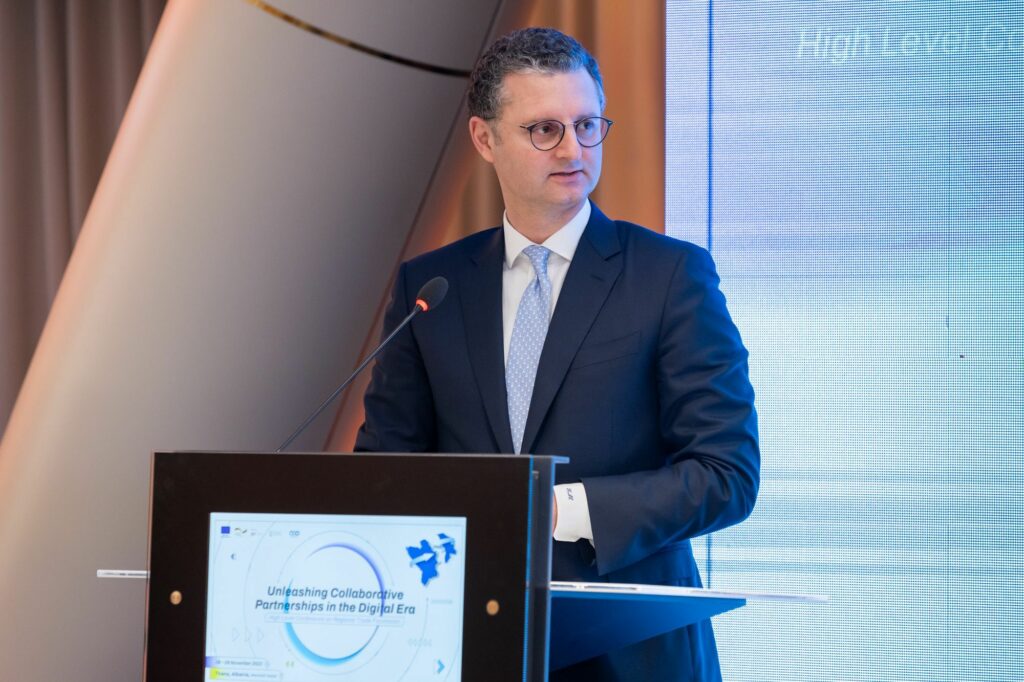
Ms. Tanja Bošković, Head of the GIZ project, highlighted the importance of collaboration in the region’s economic integration, stressing relevance of regional trade facilitation as a multi-sectoral, multidimensional, and multi-institutional effort, demanding Customs and other government agencies to work hand in hand to advance regional cooperation and integration.
Ms. Ines Mucostepa, President, Union of Chambers of Commerce of Albania, stated that the Investment Forum of the Wester Balkan 6 Chambers has conducted a study that presents the proposals of the business sector to Wester Balkans and EU policymakers, some of which are investments into more green and blue lanes, first establishing Green Lanes across the region and then at EU borders, mutual recognition of Authorized Operator Certificates, including defining special lanes for the most frequently used border crossings with the EU, harmonization of administrative procedures and use of single digital systems, etc.
The conference offered a unique opportunity to gather insights from best practices, not only within the EU but also from around the world. These insights serve as essential resources to reinforce past successes and promote more effective collaboration within the Western Balkans and with the EU.
The conference represented an excellent opportunity to share best practices not only within the EU, but at global level, aiming at promoting of effective collaboration within the Western Balkans and with the EU. The conference fostered dynamic discussions envisioning a path towards the region’s economic future and advocating for progressive collaborations. The call for innovation and a fresh approach towards trade facilitation echoed among the attendees, promising a bright and robust trajectory for the region’s economic prosperity.
